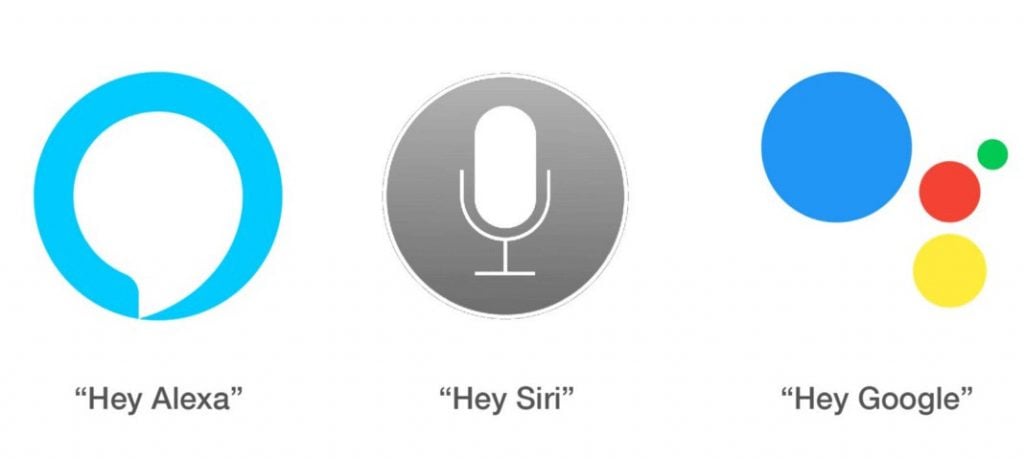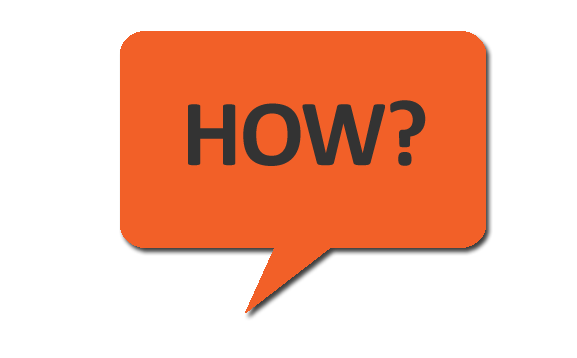How to delete voice assistant recordings? [2023]
Last updated on November 2nd, 2023 in General
 Introduction to voice assistant recordings
Introduction to voice assistant recordingsHey there tech-savvy readers! Are you a fan of using voice assistants or voice recordings to make your life easier? Whether it’s asking Siri for the weather forecast or requesting Alexa to play your favorite tunes, these virtual helpers have become an integral part of our daily routines.
But have you ever stopped to think about what happens to all those voice assistant recordings?
Well, buckle up because today we’re diving into the world of privacy concerns surrounding voice assistant recordings and showing you how to take control by deleting them. So get ready to reclaim your digital privacy and say goodbye to those pesky audio files!

As voice assistants become more integrated into our daily lives, there are growing concerns about the privacy and security of the data they collect. One major concern is the recordings that are made by these voice assistants. These recordings can include personal conversations, sensitive information, and even accidental recordings of private moments.
The thought of someone having access to these recordings is unsettling for many people. It raises questions about who has access to this data and how it could be used without our knowledge or consent. There have been cases where voice assistant recordings have been unintentionally shared with third parties or accessed by unauthorized individuals.
Additionally, there is also a fear that these recorded conversations could be analyzed for targeted advertising purposes or sold to advertisers without our consent. The idea that our private conversations could be monetized without our knowledge is deeply concerning.
To address these privacy concerns, it’s important for users to take control over their voice assistant recordings. This means being proactive in managing and deleting them regularly.
 Step by step guide on deleting voice assistant recordings
Step by step guide on deleting voice assistant recordings
Privacy has become a major concern in the digital age, especially when it comes to voice assistant devices. These devices are always listening and recording our conversations, which can be unsettling for many users. If you’re someone who values their privacy and wants to delete these voice assistant recordings, here’s a step-by-step guide to help you regain control.
1. Identify your voice assistant: The first step is to determine which brand of voice assistant device you have. Popular ones include Amazon Echo (Alexa), Google Home (Google Assistant), and Apple HomePod (Siri).
2. Access the settings: Once you know your device, locate its accompanying app on your smartphone or tablet. Open the app and find the settings menu.
3. Find recorded data: Look for an option within the settings that mentions “recorded data” or “voice history.” This is where all your interactions with the voice assistant will be stored.
4. Review and select recordings: Once you’ve found the recorded data section, browse through your past interactions with the device. Select the specific recordings that you want to delete.
5. Delete selected recordings: After selecting the desired recordings, look for a delete button or option within each individual interaction or in a batch deletion feature if available.
6. Confirm deletion: Some apps may require confirmation before permanently deleting any data; make sure to follow any prompts accordingly.
7. Continue regular deletions: To maintain privacy going forward, make it a habit of regularly reviewing and deleting older recordings from your device’s records.
By following these simple steps, you can take control over your privacy in relation to voice assistants’ recorded data.
Tips for Preventing Future Voice Assistant Recordings
1. Review Privacy Settings Regularly: Start by reviewing the privacy settings of your voice assistant device. Most devices provide options to limit or disable recording and data-sharing features. Take the time to understand and adjust these settings according to your preferences.
2. Use a Physical Mute Button: Many voice assistant devices come with physical mute buttons that allow you to easily turn off the microphone when not in use. This ensures that no unintended recordings are captured without your knowledge.
3. Be Mindful of Placement: Consider where you place your voice assistant device within your home or office space. Avoid placing it in areas where conversations or sensitive discussions frequently occur, such as bedrooms or private meeting rooms.
4. Limit Sensitive Discussions: Keep in mind that any conversation within range of a voice assistant device has the potential to be recorded, even if unintentionally triggered by similar-sounding phrases or words. Be conscious of this and try to avoid discussing highly personal or sensitive information near these devices.
5. Delete Old Recordings Regularly: Make it a habit to regularly review and delete old voice assistant recordings stored on your device or associated accounts. This helps reduce the amount of potentially sensitive information being retained over time.
6. Consider Using Voice Assistant Alternatives: If you have concerns about privacy and data collection, consider using alternative methods for tasks typically performed by voice assistants, such as manually typing queries into search engines or using traditional remote controls for smart home automation.
Remember, while taking these precautions can help minimize future recordings from your voice assistant device, it’s important to stay informed about updates regarding privacy policies and security measures implemented by manufacturers.

Companies have a crucial role to play in safeguarding the privacy of users when it comes to voice assistant recordings. As consumers increasingly rely on these technologies, it becomes imperative for companies to prioritize user privacy and take necessary steps to protect their data.
Companies should implement robust security measures to ensure that voice assistant recordings are securely stored and protected from unauthorized access. This includes encrypting the data both during transmission and storage, as well as regularly updating security protocols to stay ahead of potential threats.
Transparency is key. Companies must be transparent about how they handle user data and provide clear information on what types of recordings are being collected, how long they are retained for, and who has access to them. Users should have full control over their own data and be able to easily manage or delete their voice assistant recordings.
Furthermore, companies must obtain explicit consent from users before collecting any sensitive or personal information through voice assistants. They should also give users the option to opt-out of recording features altogether if they do not wish their conversations with the voice assistant to be recorded.
In addition, regular audits and assessments should be conducted by companies themselves or independent third parties to ensure compliance with privacy regulations such as GDPR (General Data Protection Regulation) or CCPA (California Consumer Privacy Act). By proactively monitoring their practices, companies can identify any vulnerabilities or shortcomings in protecting user privacy and take appropriate corrective actions.
The responsibility lies with companies not only in protecting user’s privacy but also in earning their trust. Safeguarding user data is not just a legal requirement but an ethical obligation that should be ingrained within company culture. Only by prioritizing user privacy can companies build strong relationships with customers based on trust and loyalty.
It is important for us as consumers to hold these companies accountable by choosing products from reputable brands that prioritize user privacy. By making informed decisions about which voice assistant devices we use and taking steps like deleting our own voice assistant recordings, we can empower ourselves and contribute to a safer digital environment.
Alternatives to using a voice assistant
1. Manual search: One of the simplest alternatives to using a voice assistant is to manually search for information on your device. Instead of asking questions out loud, you can type keywords into a search engine or browse through websites and apps to find the answers you need.
2. Text-based assistants: Another option is to use text-based virtual assistants instead of voice-enabled ones. These assistants function similarly to their voice counterparts but require you to type in your queries rather than speak them aloud. This allows you to interact with technology while maintaining more privacy and control over your personal data.
3. Dedicated apps: Many specific tasks that are commonly performed by voice assistants have dedicated apps available for download. For example, instead of relying on a weather forecast from a voice assistant, you can install a weather app that provides accurate and up-to-date information without compromising your privacy.
4. Traditional methods: Let’s not forget about traditional methods like consulting books, talking directly with experts in relevant fields, or seeking advice from friends and family members who may have knowledge in certain areas.
5. Personal research: Engaging in personal research allows users greater autonomy when it comes to collecting information on various topics of interest without relying solely on technology-driven solutions.
By exploring these alternatives, individuals can strike a balance between utilizing modern technology and safeguarding their privacy concerns surrounding voice assistant recordings
In today’s digital age, voice assistants have become an integral part of our lives. They make tasks easier and provide us with instant information at the sound of our voice. However, it is important to remember that these devices also record our conversations and interactions for various reasons.
Privacy concerns surrounding voice assistant recordings are valid and should not be taken lightly. The thought of someone listening in on our private conversations can be unsettling. Fortunately, there are ways to delete these recordings and take control of your privacy.
By following the step-by-step guide provided in this article, you can easily delete voice assistant recordings from popular devices such as Amazon Echo, Google Home, or Apple Siri. Remember to regularly check for new recordings and remove them promptly.
Additionally, consider implementing some tips to prevent future voice assistant recordings. Be mindful of what you say around your device and consider muting or turning off the microphone when not needed. Keeping your device’s firmware up-to-date is also crucial as companies often release updates that address security vulnerabilities.
While it is essential for individuals to take responsibility for their own privacy, companies must do their part too. Tech giants need to prioritize user privacy by enhancing their data protection measures and offering transparent options for users to manage their recorded data easily.
If you’re concerned about using a voice assistant altogether due to privacy issues or simply prefer another method of accessing information quickly, there are alternatives available. You can opt for typing queries into search engines manually or use text-based virtual assistants instead.
In conclusion(!), while voice assistants offer convenience and efficiency in many aspects of our daily lives(!), we must remain vigilant about protecting our privacy(!). By taking steps outlined in this article(,) like deleting previous voice assistant recordings(,), preventing future ones(,)(),() holding tech companies accountable(,)()-,()-) – we can ensure greater peace of mind knowing that only the words spoken aloud will echo through time!